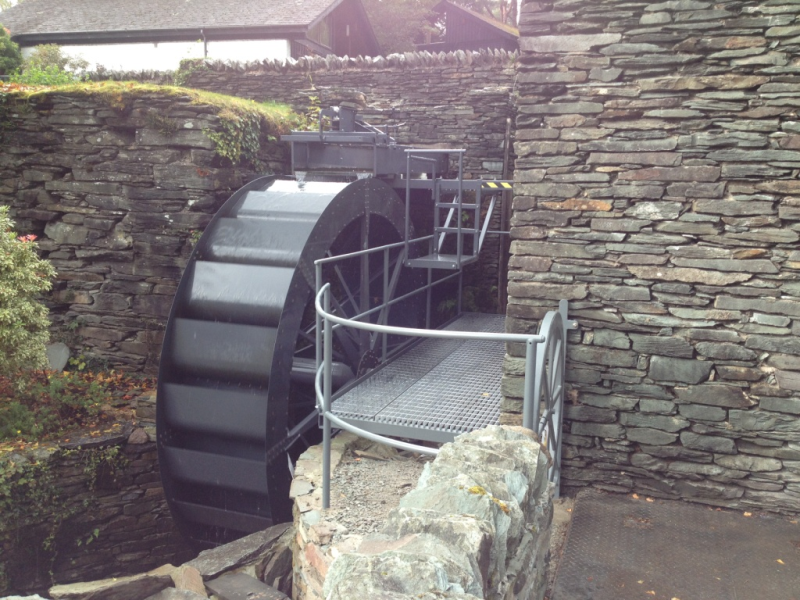
Smith Engineering have been voted winners of a renewable energy award for their high efficiency, flat pack waterwheel concept that is capable of generating up to 6 kW/hr of electricity from a continuous water flow of 200 litres per second.
The waterwheel secured the only award of the day at a Knowledge Exchange Workshop held at Energus in Workington by The Renewable Energy Test & Education Centre (RETEC) on 27th February. Hosted by the University of Cumbria, the waterwheel secured the votes of delegates at the event for its ‘Journey to Commercialisation’ with the first installation being the Langdale Waterwheel project at a Lake district hotel, where it is delivering 6 kW/hr of electricity 24/7.
Sandra Booth, Pro Vice Chancellor of the University of Cumbria explains:
“One of the aims of RETEC is to progress prototypes, helping bring them to market. The waterwheel project is an excellent example of how this has been achieved and is recognised in Smith Engineering being voted the clear winners of this award.”
RETEC supports research into innovative, low-carbon energy technologies and funded the waterwheel project. The Centre provides a focal point for renewable energy research and development, testing and educational programmes. Over the past 12 months they have provided seed-corn funding to Cumbrian businesses for product development, prototype manufacture, testing and research of low carbon technologies.
The workshop provided the opportunity for individual project leads to share knowledge and experiences with peers and academics through presenting the successes and challenges encountered.
This is the second award the company has received from the University. Last year, Managing Director, Rod Smith was presented with the Special Recognition Award for Sustainability. The award recognised Rod’s commitment to the staff and the company’s R&D work in electricity generating waterwheel technology.
Rod Smith, Managing Director at Smith Engineering said: “We are delighted to receive our second award from the University. It means a lot to us as it was voted for by our peers who are all developing their own innovative, renewable energy technologies. Waterwheels of our innovative design can be installed in remote locations with simple hand tools, and can pay for themselves in around seven years.”
